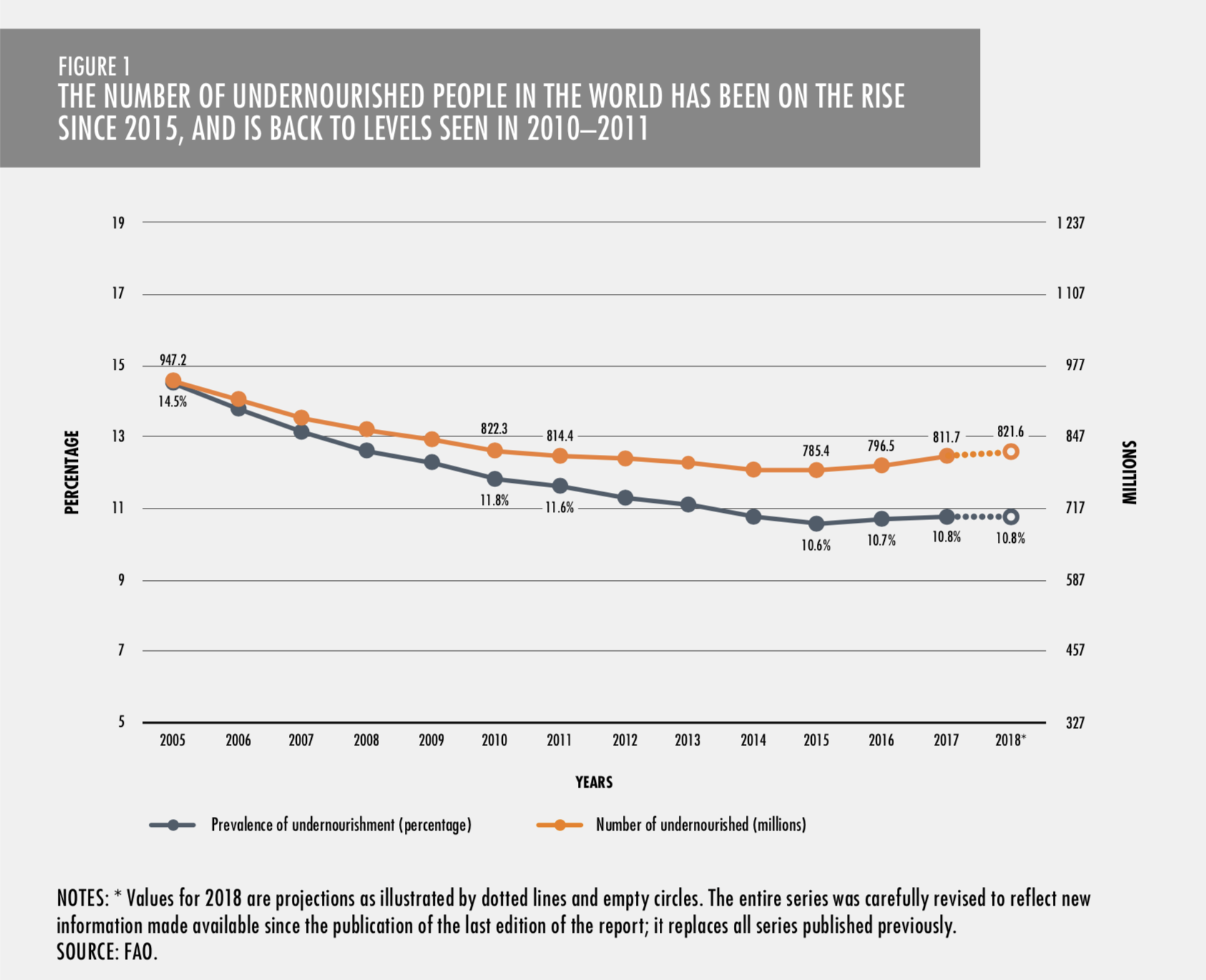
By Anna Pick.
Yesterday, the Food and Agriculture Organization of the United Nations launched its third annual report on ‘The State of Food Security and Nutrition in the World’ (SOFI, 2019).
The report shows that, after decades of progress, the number of hungry people in the world has increased for the third year in a row, reaching a total of 821.6 million. This is close to the combined total populations of the European Union and the USA. For the first time this year, the report also documents food security, measured by regular access to safe, nutritious and sufficient food. Over 2 billion people, or 26.4% of the world’s population, experience moderate or severe food insecurity.
Conflict, climate change and natural disasters are all key drivers of both chronic hunger and food crises. This year’s report also highlights the role of economic shocks, which were the primary driver of acute food insecurity for over ten million people.
This evidence confirms that without bold action now, it will be impossible to meet SDG2, which aims at Zero Hunger by 2030. At the Spring Meetings of the World Bank earlier this year, the German Parliamentary State Secretary Maria Flachsbarth called for an international coalition to address the urgent threat of rising hunger. Germany will lead this coalition, and plans to hold a major event in 2020 to catalyse a global response.
Future Advocacy are proud to be working with the Global Agriculture and Food Security Program (GAFSP), which is poised to play a critical role in reversing the increase in global hunger and helping to get SDG2 back on track. GAFSP is a global initiative which was started in 2009 by the G8 and G20, to improve incomes and food security of poor people in the poorest countries and maximize the contribution of public and private sector investments into agriculture.
Smallholder farmers are the backbone of our global food system. They produce a large proportion of the world’s food, sustain rural communities, and will be amongst the first affected by climate breakdown. There are an estimated 500 million smallholder households in the world representing more than two billion people, around 80% of which are women. GAFSP recognises that the key to eradicating hunger lies in empowering these farmers and their communities. Both smallholders and civil society are well represented on the organisation’s Steering Committee (alongside donor countries and multilateral institutions) and have an active presence, shaping and championing GAFSP programs.
A growing world population and a greater consumption of meat will add strain to global food systems, unless balanced by changing consumption patterns elsewhere. In June 2019, the Eat Lancet report outlined the dietary changes that would be needed to ensure healthy lives within planetary boundaries. This task will also be made harder by climate change and conflict which will disrupt food systems.
SOFI 2019 also shows that food security is an excellent indicator of overall health and wellbeing – better than other indicators of living conditions such as household income, shelter and housing, and employment. Food security through sustainable agriculture should be at the heart of all poverty reduction efforts. GAFSP, which was built around the core principles of aid effectiveness – country ownership, donor alignment, mutual accountability – will have a key role to play.
Anna Pick is Research, Advocacy and Communications Coordinator at Future Advocacy.